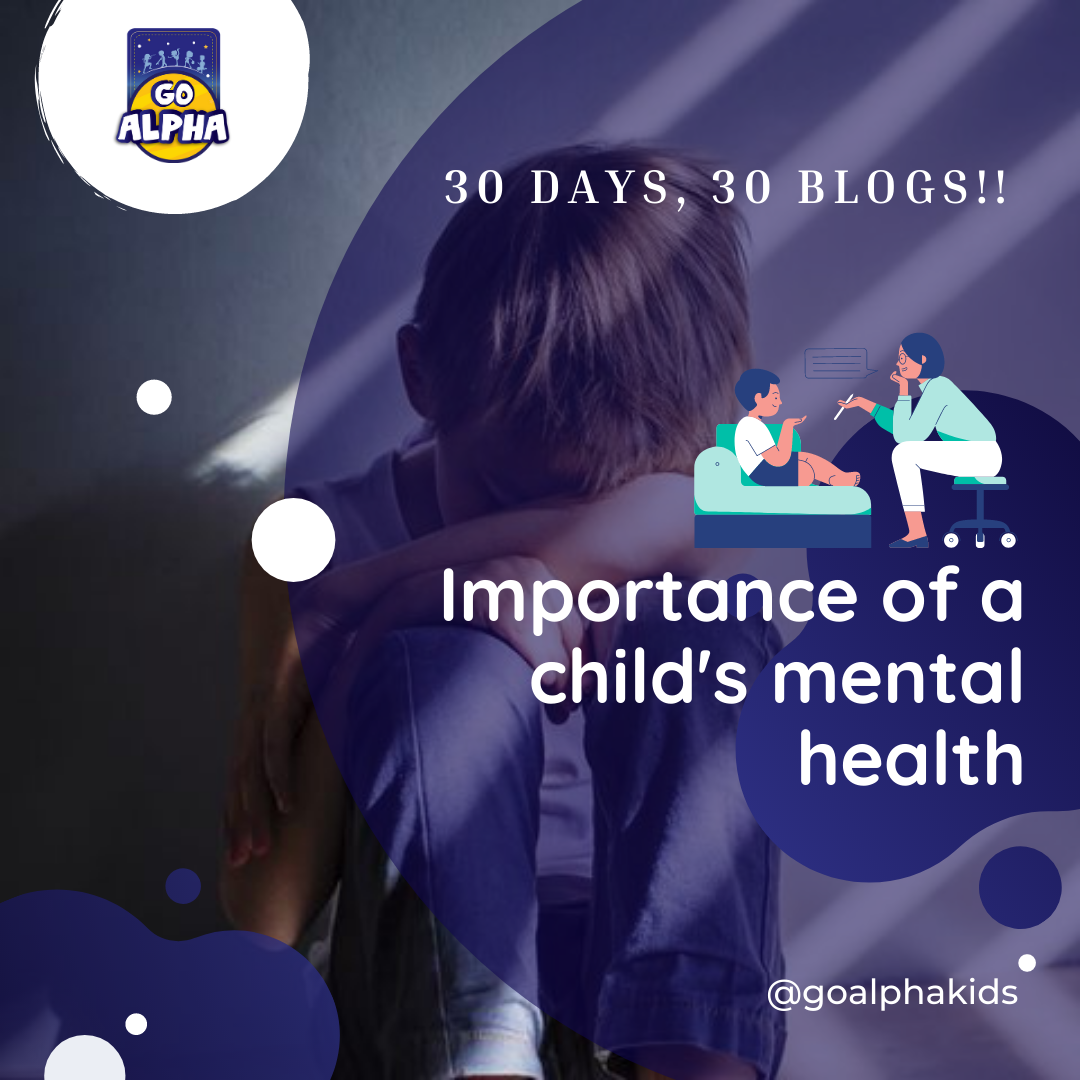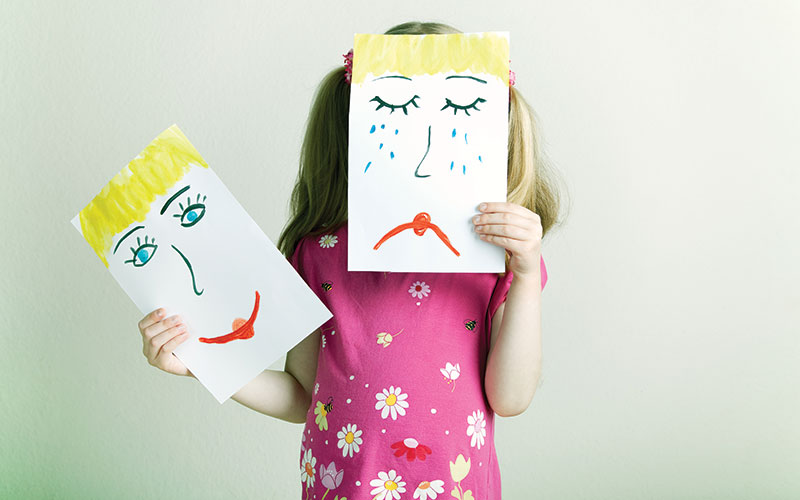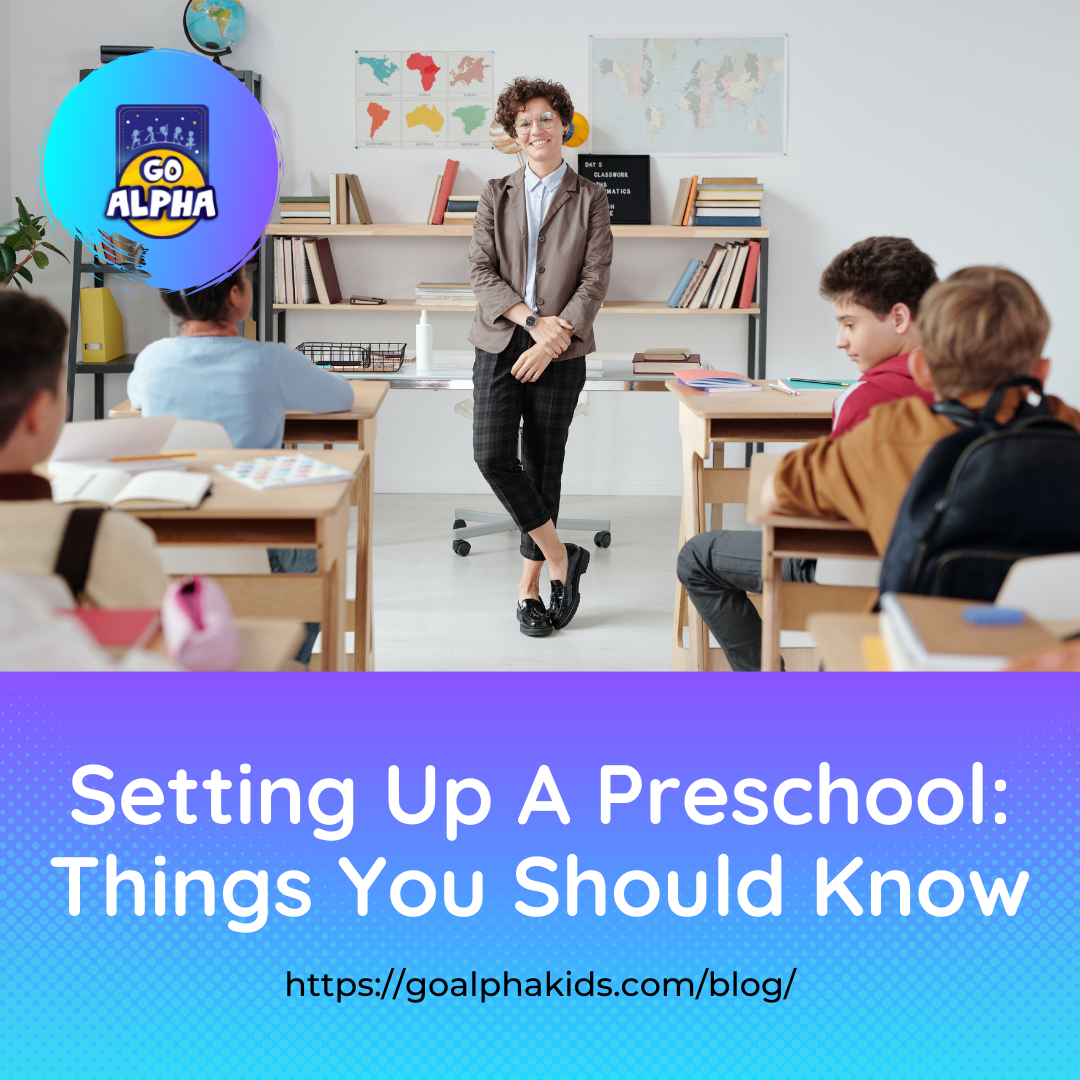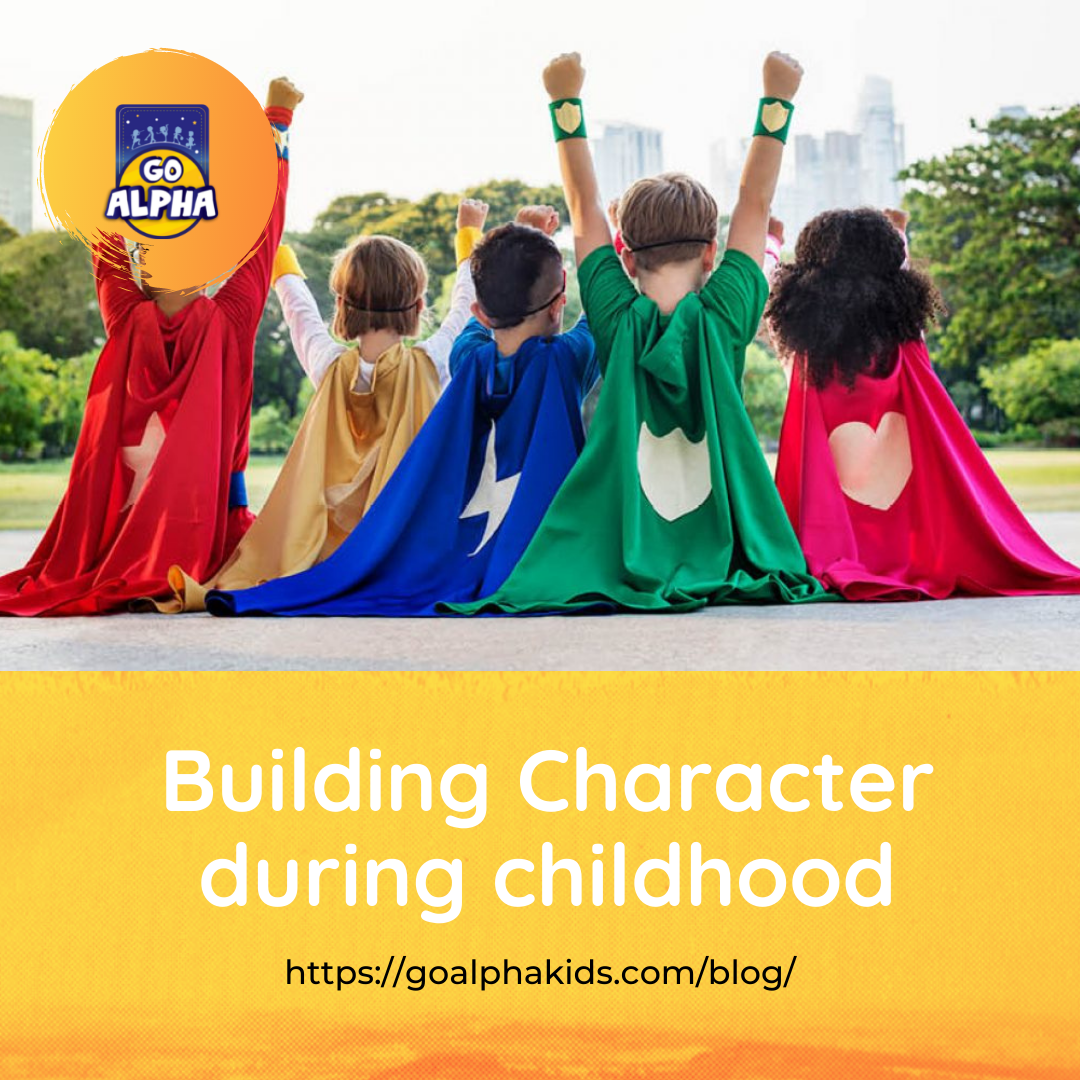

Importance of a Child’s Mental Health
Mental health is an important topic that requires an in-depth conversation. The pandemic allowed the parents to realize its importance, and more people have engaged in discussions regarding mental health and mental health problems.
While the adults have started accepting their challenges, it is crucial to remember that a child’s mental health requires the same amount of attention, if not more.
On the 3rd day of the Kids Sport Summit, Ms Japnoor Garcha helped us understand the importance of a child’s mental health. She also talked about the impact of mental health on a child’s life and suggested the different ways in which the parents and the children can tackle these issues.


WHY IS A CHILD’S MENTAL HEALTH IMPORTANT?
We are focused on providing the children with the best of everything. While in the process, we focus on the child’s nutrition and physical well-being, we tend to overlook their mental health.
- A healthy mind can help the child be more resilient.
- Mental health directly impacts physical health.
- Paying attention to mental health from a young age can help the child become a well-rounded, stable adult.
Impact of covid on mental health.
Along with confusion and uncertainty, the pandemic induced fear and restlessness in children’s minds. They could not move out and live the life they used to.
Children had to get used to living a restricted life which they could not fully comprehend.
There is no stimulation, as opposed to the school environment.
A classroom can provide the child with structure and proper stimulation and helps them stay active and engaged.
Homes can have the opposite impact on them, especially when it is the only space day-to-day they can move in on.
- Children do not have the opportunity to interact normally with their peers or teachers.
- The prolonged screen exposure leads to increased stress and reduced physical movement.
- Such a situation causes the child to feel tired and unmotivated.
HOW TO HELP A CHILD STAY ENGAGED AND CURIOUS?


It is easy for a child to get distracted and lose focus while working. And given the current situation, children tend to get bored with their environment and lack the motivation to perform their tasks.
Beginning with a simple activity, Japnoor Garcha introduced to the viewers a technique that can help bring the child’s attention back to their environment.
She introduced the GROUNDING TECHNIQUE, where she asked the children to:
- Name five things you can see.
- Name four things you can touch.
The grounding technique is helpful because:
- It can help break the monotony of the task
- The children can focus on what they have instead of focusing on the things they do not have.
- It takes their mind off of stressful situations and helps them relax.
WHAT CAN BE DONE?
Build a routine
The home environment is associated with relaxation and break, and being productive can be challenging at times.
- It is necessary to form a routine that can help both the parent and the child. Routine can help them stay active and be more effective in their day-to-day lives.
- Avoid being rigid with the routine, and it’s okay to let it go and follow your heart.
- Practice the routine in a way that will help the child follow your lead. If you are strict and not flexible, the child will feel the stress of work as well.
Keep your child engaged.
A simple method can go a long way in maintaining a child’s curiosity, and playing pretend can help the children stay creative while staying safe. Ms Garcha suggests that the parents should:
- Ask them to act like scientists and conduct research on the ongoing phenomenon. This activity will inspire children to learn and familiarize themselves with the situation.
- Make the child feel appreciated and treat them with kindness and respect. Instead of enforcing strict rules, engage the child in play, where they get to learn and entertain themselves at the same time.
- She also suggested taking walks in the park while taking the necessary precautions and allow the children to observe their environment.
- Make them take notes on how the world has changed since the beginning of the pandemic. They can note the changes taking place worldwide.
These simple activities can help the child see their situation in the big scene, and they can work through the problem with ease. As the child observes the changing conditions:
- It will help them adjust to their environment.
- They will understand the importance of being cautious.
- They will experience a reduced amount of anxiety.
Developing hobbies
Developing a new hobby or exploring an old one can be helpful.
- It will help the parent form a deeper connection with their child.
- The child can develop an interest in activities that can even lead to them exploring a lifelong passion.
Creating a dialogue and educating a child
Help the child relate to you. Discuss your own experiences and help them form connections with their situation. Do not hide your mistakes, and avoid trying to look perfect. When parents make a mistake, the child realizes that it is normal for people to make mistakes. This, in turn, helps them feel better about themselves.
Make them feel important.
Trust them and help them feel heard and appreciated. Give the child a chance to help around the house. Give them easy tasks, and instead of praising them, thank them for their efforts.
Incorporate play into the routine.
Structured or unstructured, recreate the classroom stimulation at home to help them stay engaged and active. Ensure that there is enough movement throughout the day. It can be in the form of dance or indoor sports. These simple activities will help the child stay engaged and will prevent boredom.
FAQs
Q. What are the other problems kids can have from a mental health perspective?
Mental health problems can have the following effects on the lives of children:
- Lack of interest in learning and school activities.
- Social isolation.
- Delay in speech development.
- They end up throwing tantrums and are aggressive towards family and friends.
- Can lead to a weakened immune system and risk of other illnesses.
The most common mental health problems in children are:
ADHD- Attention Deficit Hyperactivity Disorder.
ODD- Oppositional Defiant Disorder.
CD- Conduct Disorder.
Understanding these disorders can help the parents, as they will reach out to professionals for support. The professionals can help mitigate the problems in a timely fashion.
Signs to look out for:
- Is the child withdrawn?
- Is the child hyperactive?
Recognizing hyperactivity:
- The child will throw tantrums beyond their age.
- They are aggressive with everyone, both family and friends.
- Do they constantly jump around and do not get tired?
- Do they get distracted easily?
- They are drawing on tables, wall scratching.
- Sometimes the child only has ADD, where they are not hyperactive but are distracted.
Seeking therapy and consulting a psychologist is rational as the child can benefit from it if they get the right help at the right time.
- Taking a child to a psychologist is the same as taking a child to a doctor when they get sick.
- A psychologist can pinpoint the problems.
- They can help mitigate the problem.
Stigma causes a delay in the diagnosis.
Not seeking help can delay the process of healing and can lead to a setback.
Q. We tried routines, but the repetition of activities causes distraction in the child. How can the child find engaging activities on their own?
Have a variety of activities ready
Leave the child alone with activities that might help them explore how the child can use an object.
Example- give a newspaper to a child and ask them to find the different ways they can fold the newspaper. This activity will help the child stay engaged as they will try to find the maximum possible solutions to the problem.
Children hate the feeling of being stuck, and thus engaging them in problem-solving activities can help them stay motivated, as they feel a sense of importance while doing the task.
Q. How to deal with tantrums and boredom?
Punishment is not the solution.
Corporal punishments do more harm than good. The child forms negative associations with a particular task.
Put the child in a non-stimulating environment.
Make them go to a room where they have no access to any form of entertainment. You can switch off the lights and have them sit by themselves in the room.
A time out can have prolonged benefits.
Based on the child’s age, set a timer and give them time to realize their mistake. Give them time to feel their feelings and leave them there till they feel sorry about their behaviour. This method has prolonged effects.
If there are safety concerns, sit with your child in the time out, and do not interact with them.
Q. Does a child require medicine for ADHD?
It is best to book a consultation since no two children are the same.
Prescribing medicines requires the psychologist to take a close look at the child’s medical history. The child might need medication in extreme cases where they suffer from stress or depression.
Q. How to help a child who does not show any interest in talking to anyone?
Seeking out medical help is suggested and ensure that:
- The child is getting stimulated enough, play videos and audios that requires speaking, for example, a video with
- If a child does not develop proper speech at the appropriate age, the parents can use speech therapy to aid their child’s speech development.
- The child is given a tablet, phones, etc., and has no one to talk to in such situations. Hence, developing coherent speech is not possible.
Q. Why does a child become reserved and avoids interacting with other children?
It is necessary to understand the root cause of the behaviour. Some possible causes can be:
- Lack of age-appropriate interaction with society.
- A delayed interaction phase in the child’s life can lead to problems with speech development.
- A bullying problem can also lead to the child becoming reserved.
Try probing for an answer and find out through a conversation about why the child has withdrawn.
It is best to consult a therapist, as they are trained professionals and can pinpoint problems that are specific to the child.
By seeking help, parents can reduce the stigma attached to mental health. The child’s overall development relies on having a healthy mind, and looking after the mind is as important as looking after the body.
References
InBrief: Early Childhood Mental Health
Written by Stuti
Related Blogs
FREE Sports class Demo at your preschool
Please fill the form to get more information and set up a FREE Go Alpha Demo at your preschool.




